
Vietnam’s real estate market has witnessed a significant surge in interest and investment in recent years. The country’s remarkable economic growth, favorable investment climate, and increasing foreign direct investment have propelled its real estate sector into the spotlight. With bustling cities, stunning coastal areas, and emerging urban centers, Vietnam offers a diverse range of properties to suit different needs and preferences.
However, diving into the Vietnamese property market requires careful consideration and thorough research. The importance of conducting proper due diligence cannot be overstated. Understanding the legal framework, regulations, and cultural nuances is crucial to ensuring a smooth and successful property purchase. With this comprehensive guide, we aim to empower potential buyers with the knowledge and guidance necessary to navigate the intricacies of buying properties in Vietnam.
Vietnam’s real estate market is experiencing remarkable growth, making it an appealing destination for property buyers and investors. The country’s rapid economic development, favorable investment climate, and competitive labor costs have contributed to the increasing demand for industrial properties. Key factors driving this demand include the country’s business-friendly policies, cost-effective labor, and strategic geographical location. Popular locations for industrial properties in Vietnam include Ho Chi Minh City, Hanoi, and various industrial parks throughout the country.
Ho Chi Minh City (HCMC) serves as Vietnam’s economic hub, offering a strategic location and well-developed infrastructure for industrial investments. Hanoi, the capital city, has also seen significant industrial growth, attracting investors looking to establish manufacturing facilities and logistics centers. Additionally, Vietnam’s industrial parks, such as Long Hau Industrial Park in HCMC and VSIP located in multiple cities, provide ready-to-use infrastructure and a supportive business environment for industrial activities.
In Vietnam, industrial properties encompass factories, warehouses, logistics centers, and industrial land. Industrial parks offer comprehensive solutions with facilities and services tailored to the needs of industrial investors. When exploring the industrial property market, it is essential to conduct thorough research, engage reputable real estate agents, and seek expert advice to make informed investment decisions.

Understanding the legal framework and regulations related to property ownership in Vietnam is crucial for potential buyers, especially foreigners, looking to invest in the country. In 2023, several key factors will shape the legal landscape of property ownership and investment in Vietnam.
In recent years, there has been increasing interest from foreign investors in acquiring industrial properties for production in Vietnam. The country’s strategic location, competitive labor costs, and supportive investment policies have made it an attractive destination for industrial activities. Foreign investors looking to buy industrial properties for production purposes need to adhere to the relevant regulations and obtain the necessary permits and licenses.
When considering industrial property investments, foreign investors should engage with legal professionals who specialize in real estate and investment laws in Vietnam. These experts can provide guidance on the specific requirements and procedures for acquiring industrial properties and assist in navigating the complex regulatory landscape.
It is also essential to understand the specific regulations and incentives offered to foreign investors in the industrial sector. Vietnam provides various incentives, such as tax breaks, land lease preferences, and streamlined administrative procedures, to attract and encourage foreign investment in industrial production. Familiarize yourself with these incentives and consult with legal and investment experts to optimize your investment strategy.
Researching and identifying suitable properties for foreign investors in Vietnam requires a strategic approach and access to reliable resources. In this section, we will explore tips and strategies for conducting thorough research, factors to consider when identifying properties, and how to utilize online resources, real estate agents, and local contacts effectively.
– Start by defining your investment objectives and criteria. Determine your budget, preferred location, property type, and investment strategy.
– Utilize online platforms, property listing websites, and real estate portals that specialize in Vietnam’s property market. These platforms provide a vast range of property options and essential information.
– Research market trends, property market reports, and economic indicators to understand the dynamics and growth potential of different regions in Vietnam.
– Engage with local real estate forums, communities, and social media groups to gather insights and recommendations from other investors and expatriates.
– Location: Consider the location’s accessibility, proximity to amenities, infrastructure development, and potential for future growth. Focus on areas with strong economic and industrial prospects.
– Price Range: Determine your budget and explore properties within that range. Keep in mind additional costs such as taxes, legal fees, and maintenance expenses.
– Property Types: Evaluate different property types based on your investment goals. Options may include residential properties, commercial spaces, industrial properties, or land for development.

– Online Resources: Leverage reputable property listing websites and online platforms that cater to the Vietnamese market. Utilize advanced search filters to narrow down your options based on location, price, and property type.
– Real Estate Agents: Engage experienced real estate agents who specialize in the Vietnamese market. They can provide valuable insights, access to exclusive listings, and assistance in property viewings, negotiations, and due diligence.
– Local Contacts: Build a network of local contacts, including lawyers, property developers, and industry professionals. They can provide insider knowledge, local market updates, and potential off-market opportunities.
Conducting due diligence and property inspections are vital steps in the process of purchasing a property in Vietnam. These processes allow potential buyers to assess the property’s condition, verify its legal status, and uncover any potential issues or risks. In this section, we will explore the importance of due diligence, provide a checklist of essential considerations, and discuss the significance of property inspections.
– Mitigate Risks: Due diligence helps identify and mitigate risks associated with the property, such as legal disputes, outstanding debts, or encumbrances.
– Ensure Legal Compliance: It ensures that the property complies with local laws and regulations, confirming its eligibility for ownership and use.
– Financial Protection: Through due diligence, buyers can ensure that the property’s price is reasonable and accurately reflects its value.
– Decision-Making: Thorough research and analysis enable informed decision-making, reducing the likelihood of unexpected surprises or regrets after the purchase.
– Legal Documents: Verify the property’s ownership documents, land use rights certificates, construction permits, and other relevant legal paperwork.
– Property History: Investigate the property’s history, including past ownership transfers, any disputes or litigation records, and potential liabilities.
– Land Use Regulations: Confirm that the property’s land use is compliant with local zoning regulations and any restrictions or limitations that may apply.
– Taxes and Fees: Assess the property’s tax obligations, outstanding payments, and any potential liabilities associated with utility bills or maintenance fees.
– Infrastructure and Amenities: Evaluate the availability and quality of infrastructure, amenities, and essential services in the surrounding area.
– Structural Evaluation: Engage professional inspectors to assess the property’s structural integrity, including the foundation, roofing, plumbing, electrical systems, and overall construction quality.
– Legal Compliance: Ensure that the property meets all building codes, safety standards, and regulations imposed by relevant authorities.
– Environmental Factors: Consider conducting environmental assessments to identify any potential hazards or contamination issues on the property.
– Additional Inspections: Depending on the property type, additional inspections may be necessary, such as pest inspections, mold assessments, or specialized evaluations for unique features (e.g., industrial equipment).
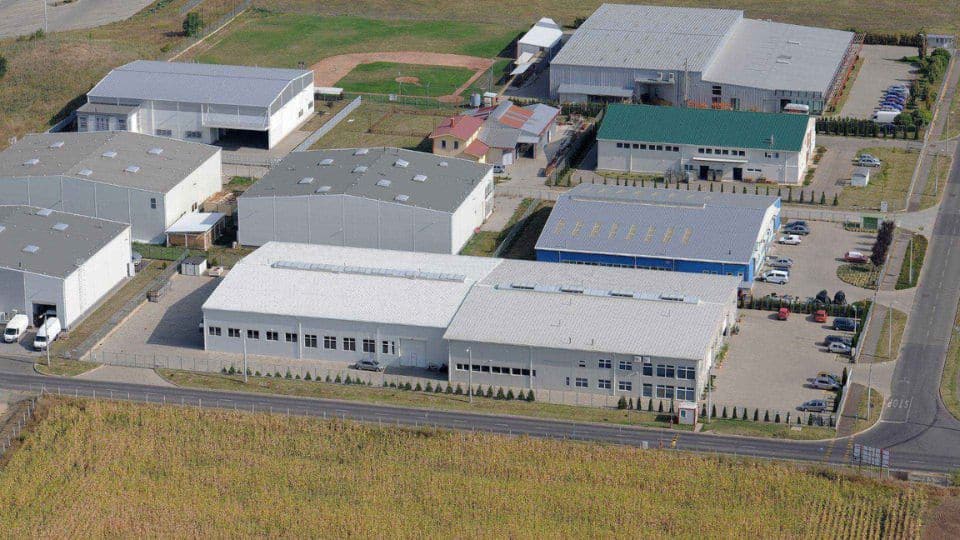
By thoroughly conducting due diligence and property inspections, buyers can make informed decisions and minimize the risks associated with their property purchase. It is advisable to engage professional inspectors, legal experts, and real estate agents who can provide guidance and assistance throughout the process.
When considering industrial property purchases in Vietnam, understanding the available financing options and payment processes is crucial. In this section, we will explore the financing options, requirements for obtaining mortgages or financing from local banks, and the payment process, including potential tax implications.
– Local Banks: Local banks in Vietnam offer financing options for property purchases, including industrial properties. These loans typically have specific terms and conditions tailored for commercial and industrial investments.
– Foreign Banks: Some international banks operating in Vietnam may also provide financing options for foreign investors looking to purchase industrial properties. These banks may offer more familiar loan products and terms for foreign investors.
– Equity Financing: Another option is to utilize equity financing, where investors use their own capital or partner with other investors to fund the property purchase. This can be an attractive option for those who want to avoid borrowing or have limited access to financing.
– Eligibility: To obtain a mortgage or financing for an industrial property, borrowers typically need to meet certain criteria set by the lender. This may include having a good credit history, providing proof of income or cash flow, and demonstrating the ability to repay the loan.
– Down Payment: Banks in Vietnam generally require a down payment ranging from 20% to 30% of the property’s value. This amount may vary based on factors such as the borrower’s creditworthiness, loan terms, and the type of property being financed.
– Collateral: Lenders may require the industrial property itself or other assets as collateral to secure the loan. During the loan application process, the bank will assess the property’s value and marketability.
– Documentation: Applicants need to provide necessary documentation, including identification, financial statements, business plans (if applicable), and legal documents related to the property.
– Deposit: After the loan approval, buyers typically need to make a deposit to secure the property. The deposit amount is usually a percentage of the property’s value and is payable to the seller or a designated escrow account.
– Payment Schedule: The payment schedule and terms will be outlined in the purchase agreement. Payments are typically made in installments, with a final payment upon completion or handover of the property.
– Tax Implications: Buyers should be aware of the potential tax implications associated with property purchases in Vietnam. This includes taxes on property transfers, value-added tax (VAT), and other relevant taxes and fees. Consult with tax advisors or legal experts to understand the specific tax obligations and potential exemptions.
It is crucial to engage with local banks or financial institutions, real estate professionals, and legal experts who specialize in property financing and taxation in Vietnam. They can provide guidance on the available financing options, assist in the loan application process, and offer advice on navigating tax obligations related to industrial property purchases.
When buying a property in Vietnam, it is highly beneficial to engage professional services to navigate the complex process and ensure a smooth transaction. In this section, we will discuss the benefits of engaging real estate agents, lawyers, and translators, provide guidance on selecting trustworthy professionals, and emphasize the importance of clear communication and understanding legal terms and contracts.
– Expertise and Knowledge: Real estate agents, lawyers, and translators possess specialized knowledge and experience in their respective fields, providing valuable insights and guidance throughout the property buying process.
– Local Market Insights: Real estate agents have a deep understanding of the local market, including property trends, pricing, and availability. They can help identify suitable properties and negotiate favorable terms.
– Legal Expertise: Lawyers familiar with property law in Vietnam can ensure that all legal requirements and obligations are met, protecting the buyer’s interests and minimizing risks.
– Language and Cultural Barrier: Translators bridge the language gap, facilitating clear communication between the buyer and local parties involved in the transaction. This helps prevent misunderstandings and ensures accurate interpretation of legal terms and documents.
– Recommendations and Referrals: Seek recommendations from trusted sources, such as friends, colleagues, or other foreign investors who have successfully bought property in Vietnam. They can provide insights into reliable professionals they have worked with.
– Credentials and Experience: Research the credentials, qualifications, and experience of real estate agents, lawyers, and translators. Look for professionals with a proven track record and extensive knowledge of the local property market.
– Professional Associations and Networks: Check if the professionals are members of reputable industry associations or networks, as this often indicates their commitment to professional standards and ongoing education.
– Language Support: Engage professional translators to ensure accurate communication during negotiations, contract reviews, and other critical discussions. Clear communication is essential for understanding legal terms, obligations, and contractual provisions.
– Legal Consultation: Seek guidance from experienced lawyers who specialize in property law in Vietnam. They can explain legal terms and provisions, review contracts, and advise on any potential risks or legal implications.
Remember, maintaining open and clear communication with professionals is key throughout the property buying process. Actively participate, ask questions, and seek clarification when needed to ensure a comprehensive understanding of all aspects of the transaction.
Negotiating property prices and terms is an essential part of the property buying process in Vietnam. In this section, we will provide tips and strategies for effective negotiation, discuss cultural considerations, and explain the process of making a formal offer and the necessary paperwork involved.
– Research and Market Knowledge: Conduct thorough research on the property market in the specific location and gather information on recent sales, property trends, and market conditions. This knowledge will empower you during negotiations.
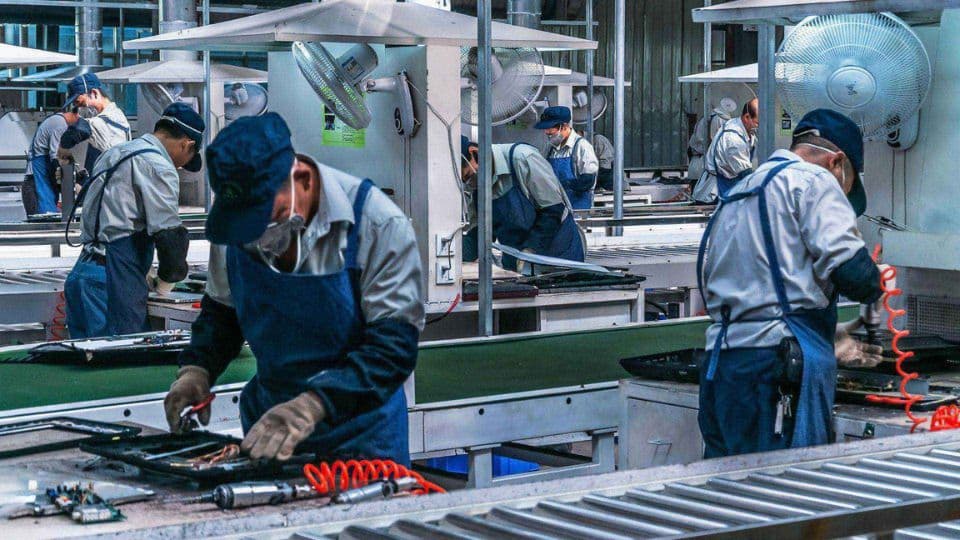
– Set Realistic Goals: Determine your target price range and desired terms based on the property’s value and market circumstances. Establishing clear objectives will guide your negotiation strategy.
– Build Rapport: Establishing a positive relationship with the seller or their representative can facilitate smoother negotiations. Showing respect, patience, and professionalism can go a long way in building rapport.
– Highlight Value: Emphasize the unique selling points or potential of the property to justify your offer. Showcase how your proposal aligns with the seller’s needs and market dynamics.
– Seek Win-Win Solutions: Look for compromises or additional terms that can benefit both parties. It could be adjusting the payment schedule, offering a shorter or longer closing period, or including certain contingencies.
– Face-to-Face Communication: In Vietnamese culture, face-to-face communication is highly valued. Whenever possible, arrange in-person meetings or video calls for important negotiation discussions.
– Politeness and Respect: Maintain a respectful and polite demeanor throughout the negotiation process. Avoid confrontational or aggressive behavior, as it may hinder progress.
– Patience and Indirectness: Vietnamese negotiation styles tend to be more indirect and focused on building relationships. Patience is crucial, as it may take time to reach mutually beneficial agreements.
– Use of Intermediaries: In some cases, employing the services of a local representative, such as a real estate agent or lawyer, can help bridge cultural and communication gaps during negotiations.
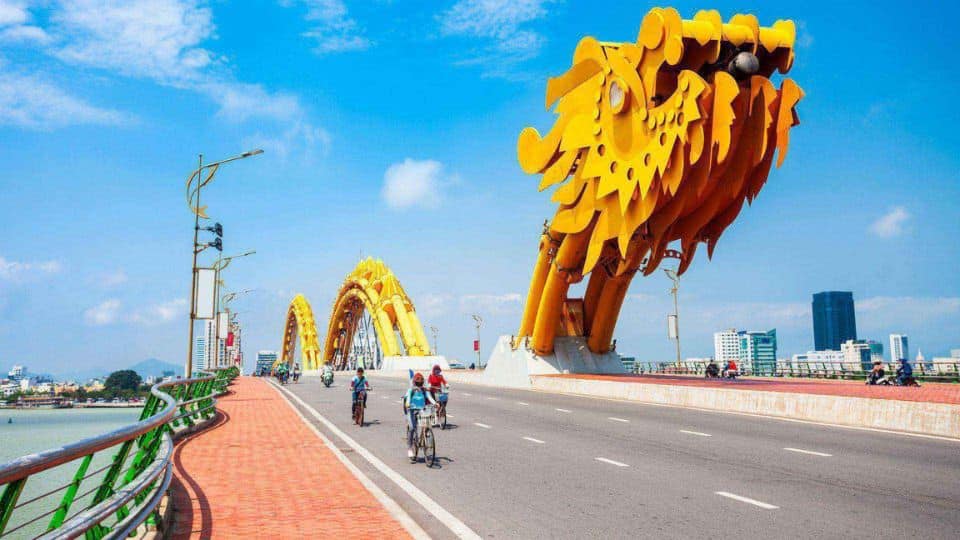
– Formal Offer: Once both parties agree on the terms, a formal offer is made. This can be done verbally or in writing, depending on the agreement. It is recommended to document the offer in writing to avoid misunderstandings.
– Letter of Intent (LOI): In more complex transactions, a Letter of Intent (LOI) may be prepared, outlining the proposed terms and conditions. The LOI serves as a preliminary agreement and demonstrates the buyer’s serious intention to proceed with the purchase.
– Necessary Paperwork: The buyer is typically responsible for preparing the necessary paperwork for the transaction. This may include identification documents, proof of funds, and any other legal documents required by the seller or their representative.
– Engaging Legal Assistance: It is advisable to engage a lawyer specializing in property transactions in Vietnam to review and assist with preparing the necessary paperwork, ensuring compliance with local laws and regulations.
Remember, negotiation is a dynamic process, and flexibility is key. Be prepared for back-and-forth discussions and be open to finding common ground. Engaging with local professionals who understand the negotiation customs and legal requirements can greatly facilitate the process and help protect your interests.
Closing a property deal in Vietnam involves several important steps to ensure a smooth and legally compliant transfer of ownership. In this section, we will outline the key steps involved in closing a property deal, discuss the required documents for the ownership transfer process, and explain the role of notaries and authorities in completing the transaction.
– Agreement Finalization: Once negotiations are successfully completed, both parties proceed to finalize the purchase agreement. This agreement should include all agreed-upon terms, conditions, and obligations.
– Deposit Payment: The buyer is typically required to make a deposit as a sign of commitment to the purchase. This deposit is often held in an escrow account until the completion of the transaction.
– Due Diligence Completion: Prior to closing, the buyer should have completed all necessary due diligence, including verification of legal documents, property inspections, and resolution of any outstanding issues or concerns.
– Ownership Transfer: The official transfer of ownership typically takes place at the local Land Registration Office. This step involves the completion of paperwork, the payment of fees, and signing the necessary documents.
– Payment Settlement: The remaining balance of the purchase price is settled according to the agreed-upon terms and conditions. This includes the payment of taxes, fees, and any outstanding amounts related to the property.
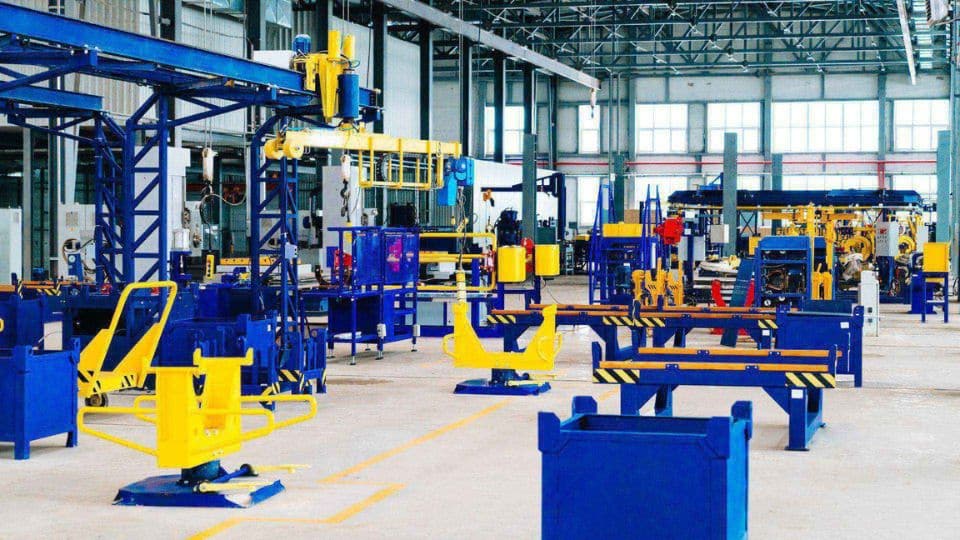
– Original Identification Documents: Both the buyer and seller must provide their original identification documents, such as passports or national ID cards, to verify their identities.
– Land Use Rights Certificate: The seller should provide the original Land Use Rights Certificate (also known as the “red book”), which serves as proof of their ownership or land use rights over the property.
– Sale and Purchase Agreement: The finalized and signed sale and purchase agreement is required to evidence the agreement between the buyer and seller.
– Tax and Fee Receipts: Proof of payment for any applicable taxes, fees, and other charges associated with the property transfer should be provided.
– Other Supporting Documents: Additional documents may be required, such as a power of attorney if one of the parties is represented by a legal representative and documents related to any loans or mortgages on the property.
– Notarization: In some cases, certain documents may require notarization by a notary public to ensure their legal validity. This includes the sale and purchase agreement and other related documents.
– Land Registration Office: The local Land Registration Office plays a crucial role in overseeing the ownership transfer process. They verify the legality of the transaction, process the necessary paperwork, and update the property records to reflect the new ownership.
– Other Authorities: Depending on the nature of the property and specific requirements, other authorities or government departments may be involved in the transaction. This could include the local People’s Committee, tax authorities, or relevant regulatory bodies.
It is advisable to engage the services of a reputable lawyer or legal representative who specializes in property transactions in Vietnam. They can guide you through the closing process, ensure all necessary documents are prepared and submitted correctly, and provide valuable advice on legal matters.
Congratulations on your property purchase in Vietnam! After acquiring an industrial property, there are important considerations to ensure its successful management, maintenance, and potential for future returns. In this section, we will discuss key post-purchase considerations, including property management and maintenance, industrial property taxes and ongoing expenses, and potential investment and rental opportunities.
– Engaging a Property Management Company: Consider hiring a professional property management company specializing in industrial properties to handle day-to-day operations, tenant management, maintenance, and ensuring compliance with regulations. They can help alleviate the burden of managing the property and maximize its potential.
– Regular Maintenance and Repairs: Implement a proactive maintenance plan to ensure the property remains in optimal condition. This includes regular inspections, addressing repairs promptly, and conducting necessary upgrades or improvements to attract and retain tenants.
– Tenant Relations: If the property is intended for rental purposes, establishing positive relationships with tenants is crucial. Responsive communication, addressing tenant concerns, and providing a well-maintained property can contribute to tenant satisfaction and long-term occupancy.
– Property Taxes: Familiarize yourself with the applicable property tax regulations in Vietnam. Industrial properties may be subject to different tax rates or exemptions based on their location, size, and usage. Consult with a tax advisor to understand your tax obligations and ensure compliance.
– Ongoing Expenses: Budget for ongoing expenses associated with the property, including utility costs, maintenance fees, property insurance, and any required licenses or permits. Understanding and properly managing these expenses is essential for maintaining profitability and a smooth operation.
– Explore Investment Potential: Consider the potential for further investment in the industrial property. Vietnam’s growing economy and industrial development present opportunities for expansion, redevelopment, or diversification of the property to generate additional income streams.
– Rental Possibilities: If you are not utilizing the property for your own operations, renting it out can be a viable option. Conduct market research to determine rental demand, prevailing rates, and the potential tenant pool. Engaging a real estate agent or property management company with knowledge of the local industrial rental market can help attract suitable tenants and negotiate favorable lease agreements.
Remember, regularly reassessing the property’s performance, staying informed about market trends, and adapting your strategy accordingly will contribute to its long-term success. Seek guidance from professionals experienced in industrial property management, taxation, and investment to make informed decisions and maximize the potential of your investment.
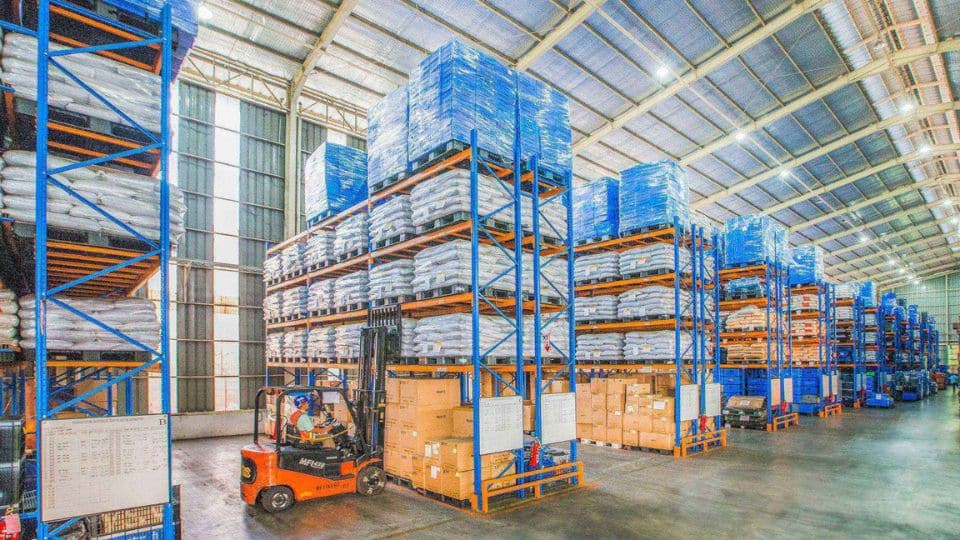
In conclusion, buying industrial properties in Vietnam can be a lucrative investment opportunity due to the country’s rapid industrial development and growing economy. Throughout this comprehensive guide, we have covered various essential aspects of the property buying process to help you make informed decisions. Let’s recap the key points discussed:
1. Research and Due Diligence: Thorough research and due diligence are crucial before purchasing an industrial property. Understand the market trends, location factors, and potential risks associated with your investment.
2. Legal Considerations: Familiarize yourself with the legal framework, regulations, and restrictions on property ownership by foreigners in Vietnam. Engage the services of a lawyer specializing in property transactions to ensure compliance and protect your interests.
3. Property Identification: Utilize online resources, real estate agents, and local contacts to identify suitable industrial properties that align with your investment goals. Consider factors such as location, price range, and property type to make an informed decision.
4. Financing and Payment Options: Explore financing options available for industrial property purchases in Vietnam. Understand the requirements for obtaining a mortgage or financing from local banks. Be aware of payment processes and potential tax implications.
5. Negotiating and Making an Offer: Employ effective negotiation strategies, taking cultural considerations into account. Make a formal offer using the necessary paperwork, such as a Letter of Intent, and engage legal assistance to ensure a smooth transaction.
6. Closing the Deal and Ownership Transfer: Follow the necessary steps for closing the property deal, including the completion of paperwork and payment settlement. Understand the role of notaries and authorities in the ownership transfer process.
7. Post-Purchase Considerations: Manage and maintain the property effectively, considering property management, regular maintenance, and tenant relations. Understand industrial property taxes, ongoing expenses, and explore potential investment and rental opportunities.

While this guide provides valuable information, it is essential to seek professional advice and conduct thorough research specific to your circumstances. Every investment carries its own risks and requirements, and professional guidance will help navigate the complexities of buying industrial properties in Vietnam.
We encourage you to stay updated on market trends, regulations, and investment opportunities. Consider subscribing to our newsletter for regular updates, tips, and insights. Explore additional resources, such as reputable real estate websites, industry associations, and local government sources, to further enhance your knowledge and make well-informed decisions.
Remember, buying industrial properties in Vietnam can be a rewarding venture, but it requires careful planning, thorough research, and professional support. We wish you success in your industrial property investment journey in Vietnam!